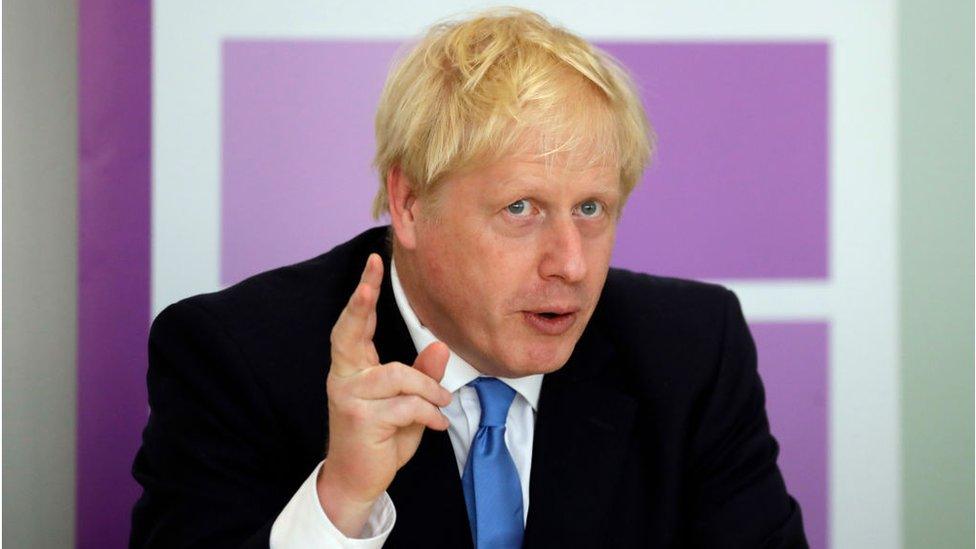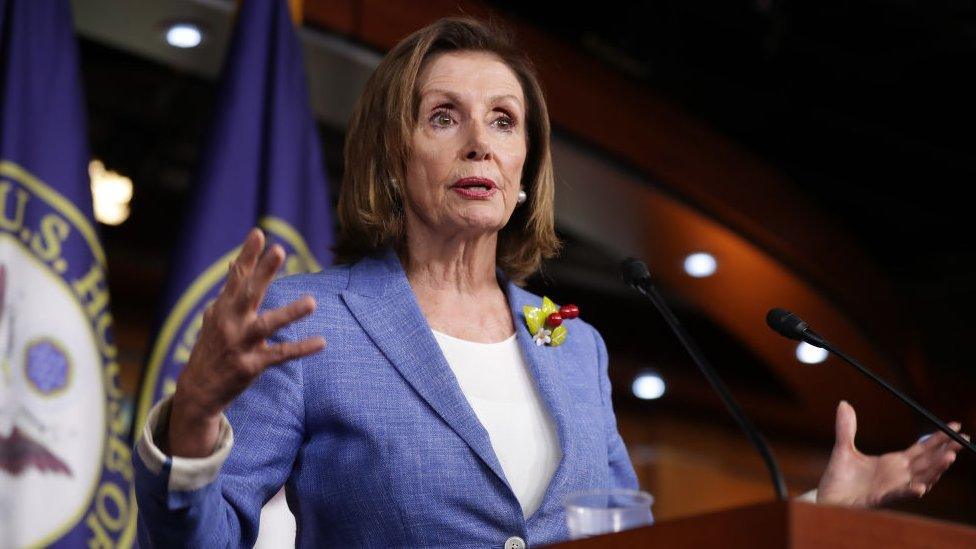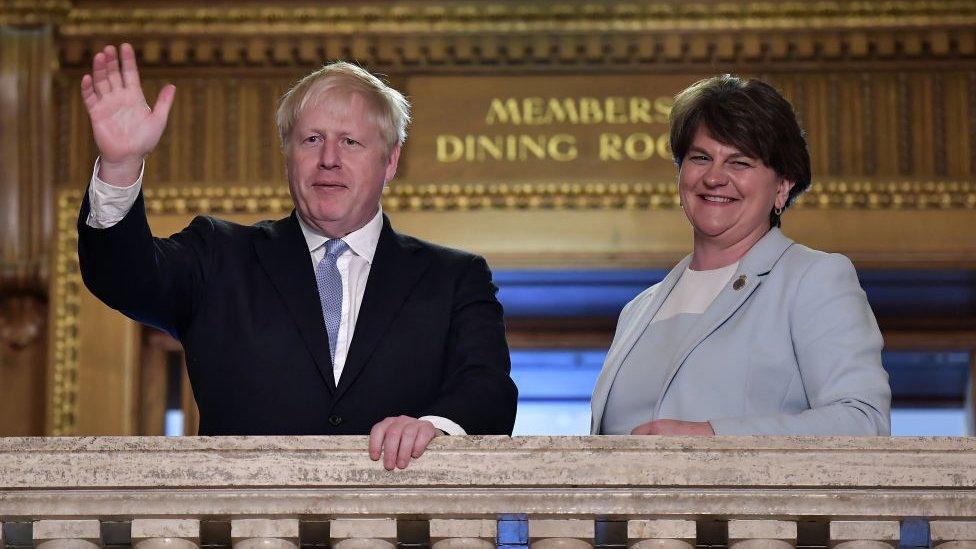Brexit: No imminent breakthrough in border backstop stand-off
- Published
- comments

The prime minister has shown a willingness to tackle the assertion from Dublin and Brussels that their approach is simply intended to protect the status quo and the Good Friday Agreement
Boris Johnson's letter to EU Council President Donald Tusk doesn't point the way towards any imminent breakthrough in the stand-off over the Brexit border backstop and the ill-fated EU-UK withdrawal agreement.
However, one interesting aspect of the letter is the PM's willingness to tackle head on the assertion from Dublin and Brussels that their approach is simply intended to protect the status quo and the Good Friday Agreement.
That argument has resonated not just in Europe, but also in sections of the US political spectrum.
While President Trump and his senior officials have been upbeat about their willingness to seal a trade deal with the UK after it quits the EU, members of Congress have argued that Brexit poses a potential threat to the peace process.
Earlier this month, House of Representatives Speaker Nancy Pelosi warned that "if Brexit undermines the Good Friday accord, there will be no chance of a US-UK trade agreement passing the Congress"., external

Nancy Pelosi warned that "if Brexit undermines the Good Friday accord, there will be no chance of a US-UK trade agreement passing the Congress."
This week, Senate Democratic Leader Chuck Schumer said he stood shoulder-to-shoulder, external with Ms Pelosi and other "supporters of the Good Friday Agreement (and opponents of a return to a hard border)", pledging to do all in his power to prevent any post Brexit US-UK trade deal which would threaten the 1998 deal getting Congressional approval.
Pro Brexit unionists get annoyed by the assumption that the UK's withdrawal from the EU is in breach of the 1998 deal, or any easy assumption that the backstop equates to a defence of the peace process.
Witness a joint live broadcast on BBC NI Newsline, when Democratic Unionist Party (DUP) leader Arlene Foster visibly rolled her eyes as Sinn Féin's Michelle Gildernew moved between Brexit and recollections of the military fortifications from which the security forces used to monitor the border at Aughnacloy during the Troubles.
By contrast, Mrs Foster welcomed the section of Mr Johnson's letter in which the PM argues that the Brexit backstop could weaken, rather than preserve, what he calls "the delicate balance embodied in the Belfast (Good Friday) Agreement."
Prime Minister Johnson says he appreciates "the laudable intentions with which the backstop was designed" but argues that "by removing control of such large areas of the commercial and economic life of Northern Ireland to an external body over which the people of Northern Ireland have no democratic control, this balance risks being undermined".

DUP leader Arlene Foster with the prime minister last month
These arguments aren't new. They have previously been advanced by the former Ulster Unionist leader and Nobel Peace Prize winner Lord Trimble and his one time adviser Lord Bew, external.
But the Johnson letter represents a greater endorsement of this ideological approach than anything which emanated from Downing Street when Theresa May was in residence.
Will this line of analysis change minds in Brussels or Washington? It seems unlikely, given that Irish government ministers were extremely effective in propagating their view of the Good Friday Agreement and the backstop in both capitals at an early stage in the Brexit proceedings.
Will it feature in legal challenges should something like the backstop ever be put in place? Quite possibly, although a previous court challenge by the victims' campaigner Raymond McCord concluded with the Supreme Court handing down a fairly narrow definition of the "principle of consent" provisions of the Good Friday Agreement.
If either the UK or the EU blinks in the coming weeks or months and agrees a new deal, their different perspectives on the compatibility of either Brexit or the backstop with the 1998 peace deal could prove to be no more than an academic footnote bar to the negotiations.
But if the UK leaves without a deal, this argument - if Downing Street sticks to it - could prolong the process of finding any alternative trade and regulatory deal which can be deemed acceptable to both sides.
